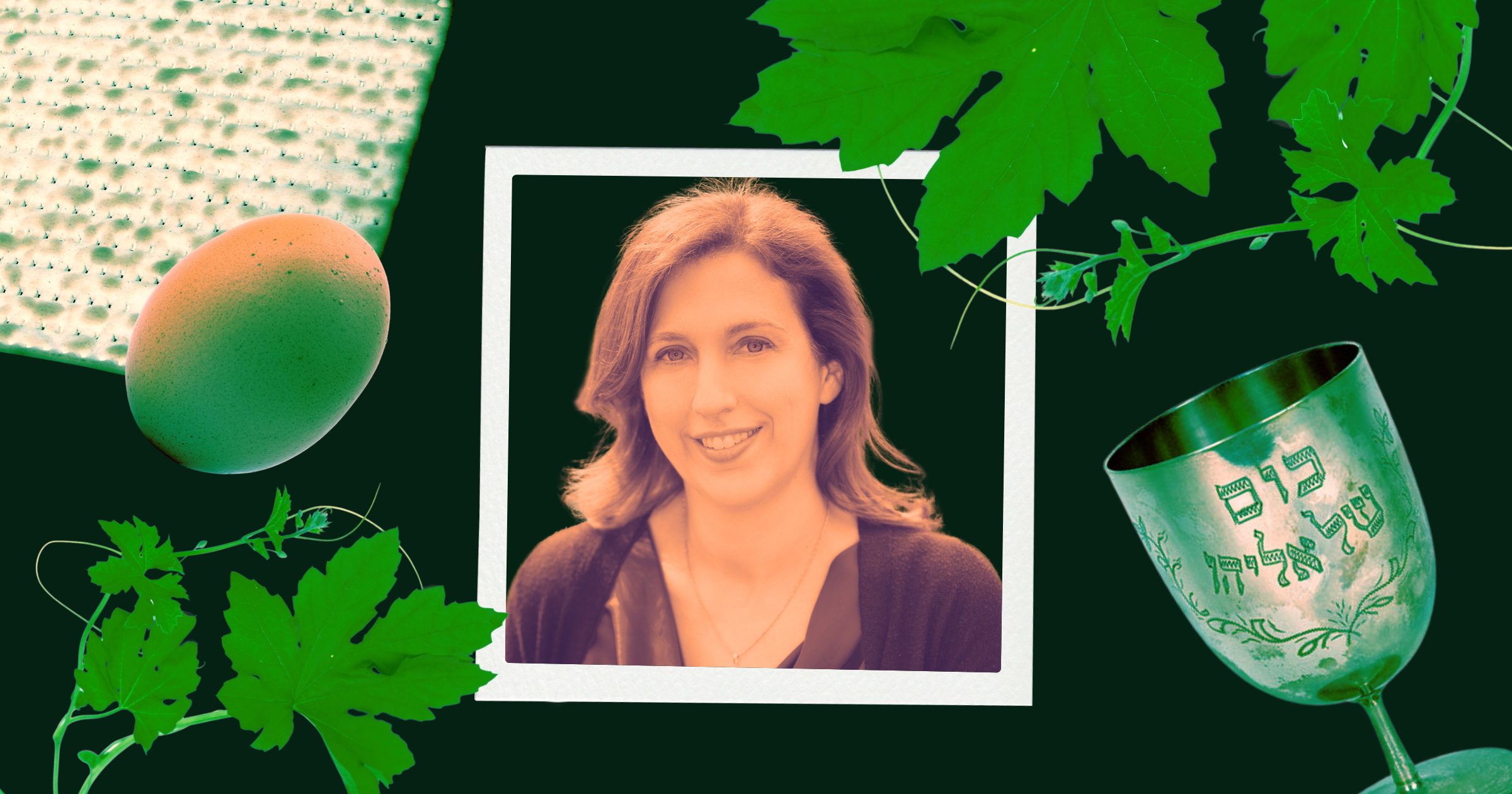Being Jewish
Personality
Holidays
Passover
Dara Horn Is Obsessed With Passover

When Dara Horn saw her four kids fighting over a graphic novel a few years ago, the award-winning writer and professor of literature realized that the medium—and the book’s artist, Theo Ellsworth—would be a perfect way to tell a Passover tale she had been thinking about that centered on time travel and a never-ending family seder.
VIRTUAL EVENT: A Conversation With Dara Horn
Join us on Thursday, March 20 at 7 PM ET when Hadassah Magazine Executive Editor Lisa Hostein interviews three-time National Jewish Book Award Winner Dara Horn about her latest work, the Passover-set graphic novel One Little Goat, about the Pesach holiday and about the alarming rise and historical roots of antisemitism. Horn, one of America’s most insightful Jewish commentators, is also the author of People Love Dead Jews, and five best-selling novels.
Horn, 48, the author of five previous novels as well as the 2021 essay collection People Love Dead Jews: Reports from a Haunted Present, says she has been “completely obsessed” with Passover since she was a child. She sees a link between her new graphic novel, One Little Goat: A Passover Catastrophe (Norton Young Readers), and the nonfiction work that has made her a leading voice in the discussion of the global rise of antisemitism. Pesach, she says, represents the “institutionalization of resilience.” This interview has been edited for brevity and clarity.
You wrote One Little Goat before October 7. How does it land now?
To me, Pesach is really a scary holiday, because it’s actually commemorating the night before the Exodus, when you’re waiting for the Angel of Death. I heard this Israeli thought leader say that when we learn on Passover about the attempts over and over again to kill the Jews, she had always thought, “We are safe from this.” But after October 7, this woman realized, “They were trying to prepare me.” The idea is true: Passover is preparation for this recurring story, and it’s also giving people the skills and the resources to see what their role is at this moment and where they fit.
Is there any throughline between your work on antisemitism and this book?
I spent 20 years of my life as a writer pushing back against what the late historian Salo Baron called “the lachrymose view of Jewish history,” i.e., full of tears. Then, I reluctantly turned to writing People Love Dead Jews to explore this idea. I started working on this graphic novel before the essay collection came out, but that book basically ate my life.
I see how interrelated these things are because I now no longer think it is realistic to try to avoid the “lachrymose aspects” of Jewish life. But I also think that what is remarkable about Jewish life isn’t this litany of horror, but this incredible resilience. Pesach is this institutionalization of resilience—we’re giving that resilience to children.
If there was doubt before the Hamas attacks that people love dead Jews, how have the last year and a half furthered your thinking?
Even before October 7, I was inundated with responses from Jewish readers that were all identical, and it didn’t matter who they were—all basically saying to me: “You know, I felt uncomfortable my whole life. I never understood why this book articulated this for me. I never told anybody this before, but….”
And then they would tell me these horror stories. Often it was something that was still happening, and they’d say, “Can you help?” And then after October 7, it was like that on steroids.
Do you think you will ever return to novel writing?
After October 7, I’ve had to put a pin in my fiction. I’m working on an organization called Mosaic Persuasion, an educational group for K-12 schools to educate the broader American public about who Jews are.
I’m also working on a book that actually has an even worse title than People Love Dead Jews. It’s called The Final Solution to the Jewish Question: A Love Story for the Living. I feel grateful that I’m in this position to help people, because however it is that I’m approaching this problem, I know it is very helpful.
Amy Klein is a freelance writer and the author of The Trying Game: Get Through Fertility Treatment and Get Pregnant Without Losing Your Mind.










 Facebook
Facebook Instagram
Instagram Twitter
Twitter
Leave a Reply